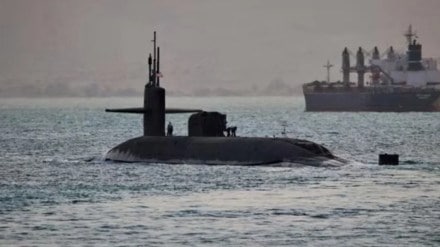The imminent decision on Project 75 (I) — a prominent Indian Navy initiative to construct six new conventional submarines — sees German heavyweight Thyssenkrupp Marine Systems (tkMS) in an important partnership with Mumbai based Mazagon Dockyards Limited (MDL). This collaboration, backed strongly by the German government, places tkMS in a favourable position among the contenders. The other contender is Navantia, the Spanish Company, which has forged a teaming agreement with L&T for Project 75 (I).
Why is the tkMS P-75 design best for the Indian Navy Programme?
The P-75 (I) design that is being offered by the German company is a derivative of the well-established HDW Class 214, which according to information in the public domain is in service in several of the navies across the globe.
It has latest technological advances including – latest enhancements in the proven Air Independent Propulsion System; Lithium-Ion Battery; Sensor & Combat System and has Stealth features.
Will it be customized for the Indian Navy – the customer?
Yes. According to sources, the company will ensure that the design will be unique and tailored to the requirements of the Indian Navy and it will be most flexible conventional submarine configuration possible which will have Fuel Cell AIP (As per the requirement mentioned in the RFP by the Ministry of Defence); and Lithium-Ion battery which is suited to higher speed endurance.
Most importantly, since the project is under the Strategic Partnership (SP) model it ensures the development of the shipyard here in India with Transfer of Technology. “This means that the company will transfer the design of the submarine to India. And not just focus on indigenous content.”
Why? In an effort to minimise long term dependency on a foreign OEM.
India-Germany Military Cooperation & Project 75 (I)
Sources privy to these negotiations told Financial Express Online about Germany’s strategic shift towards India, driven by geopolitical currents and the need to diversify business relations amidst growing regional tensions. “The German government’s intensified interest in India is evident as it pushes for deeper ties, especially in defence collaborations,” a source explained.
Adding, “tkMS, known for its technological prowess in submarine design, particularly its Air Independent Propulsion (AIP) systems, brings critical expertise to Project 75 (I). The partnership between tkMS and MDL is not merely transactional but a significant step towards fostering a long-term defence relationship between Germany and India,” the source quoted above stated.
“Germany’s commitment to this partnership goes beyond mere contractual obligations. It’s about establishing an example of military and technological cooperation in the Indo-Pacific region,” stated a government official.
Transfer of Technology
On the technological transfer and indigenization front, tkMS and MDL have laid out a clear roadmap. Financial Express Online has reported previously that the collaboration agreement between the two includes extensive technology transfer and higher indigenization quotas from the first submarine. “This aligns with India’s strategic interests and sets a new standard for international defence partnerships,” said the source.
Recent high-level visits, such as that of Indian Defence Secretary Giridhar Aramane to Berlin, have further enriched the defence dialogue, highlighting the strategic depth and mutual benefits envisioned in this collaboration.
Moreover, Germany is keen to enhance its defence exports to India, offering not just submarines but also aircraft, torpedoes, and tank power packs, with significant localization of production. “The speed at which Germany processes export licenses to India reflects our importance on this partnership. India is not just a buyer but a prime security partner in the region,” the source added.
This evolving partnership promises to bolster both nations’ strategic interests in the region. tkMS will play a central role in enhancing India’s maritime capabilities through cutting-edge technology and shared expertise.
